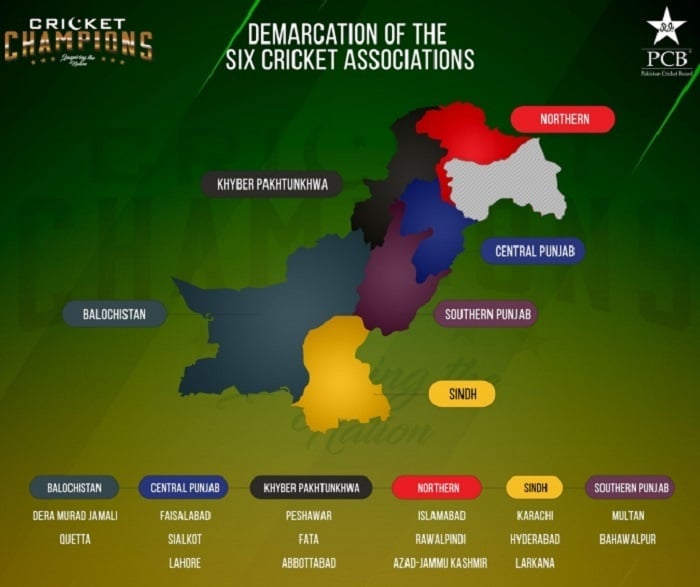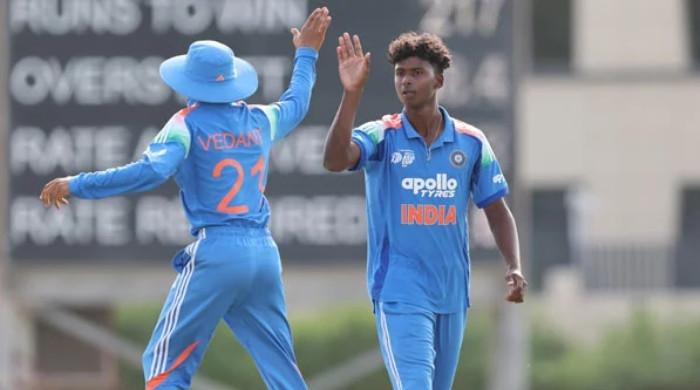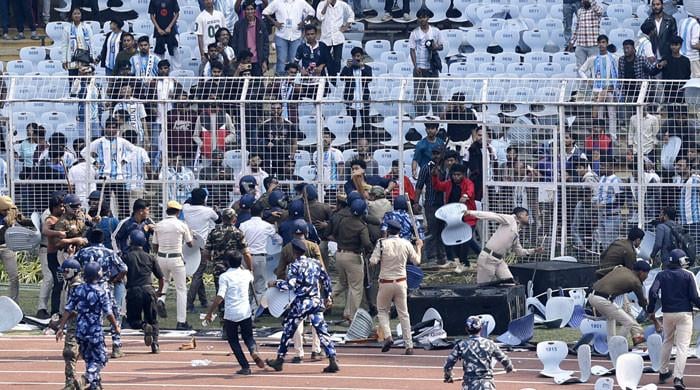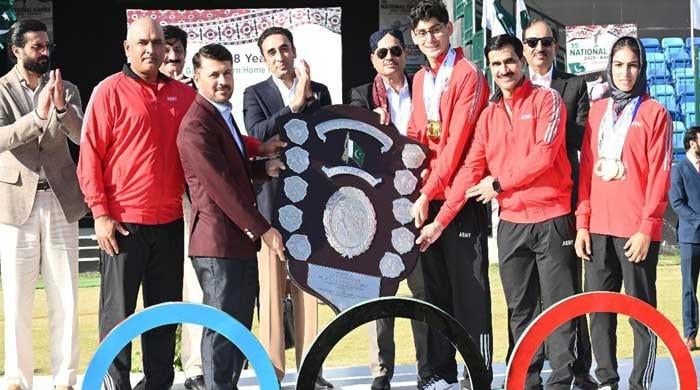PCB unfolds ambitious domestic cricket season structure
Six new provincial associations replace teams from 16 regions in domestic competitions
August 31, 2019
LAHORE: The Pakistan Cricket Board Saturday unveiled an ambitious and competitive 2019-20 domestic cricket season structure, which revolves around devising a more quality and intensity focused system to significantly improve first-class cricket and create sustainable success at international level.
The new 2019-20 structure was unfolded by PCB Chairman Ehsan Mani, Chief Executive Wasim Khan and Director Domestic Cricket Operations Haroon Rasheed at a ceremony here at the Gadaffi Stadium.
The new structure will give importance to club cricket, provide the best cricketing environment to young talented cricketers, reward top performers, create employment opportunities to former cricketers and qualified coaches, and bridge the gap between domestic and international cricket.
According to the new structure, which came into existence following the government's August 9 approval of the constitutional amendments which were notified to the PCB on August 19, teams from 16 regions have now been absorbed into the 6 newly formed provincial associations.

Sindh Cricket Association includes Karachi, Hyderabad and Larkana. Balochistan Cricket Association comprises Dera Murad Jamali and Quetta.
Southern Punjab Cricket Association includes Multan and Bahawalpur. Central Punjab Cricket Association is made up of Faisalabad, Sialkot and Lahore.
Khyber Pakhtunkhwa Cricket Association includes Peshawar, erstwhile Federally Administered Tribal Areas and Abbottabad. Northern Cricket Association comprises Islamabad, Rawalpindi and Azad-Jammu Kashmir.
Three-tiered, bottom-up approach
The new domestic structure will be based on a three-tiered bottom-up approach - providing a clear pathway for the aspiring cricketers to graduate to the top level.
In the first tier, the 90 city cricket associations will be responsible for organizing club and school cricket in their respective jurisdictions and subsequently forming their city cricket teams.
In the second tier, the city cricket teams will participate in intra-city competitions within the jurisdiction of their cricket associations.
In the third tier, the best performing players from the intra-city competitions will form the six respective cricket association sides that will participate in the PCB-organized tournaments.
Underpinning the pathway system will be six High-Performance Programmes which will provide quality cricket and lifestyle plans to equip players with the all-round skills required in the modern game.
High-performing players will be given incentives, and their earnings will also increase in the new structure. There will also be three selectors working with each cricket association.
Players to make up to PKR 2.5 mn per season
Thirty-two non-PCB centrally contracted players would be awarded annual domestic contracts at each cricket association and will feature in first-class, non-first class, List A, and T20 tournaments during a season.
The cricket associations will also be free to select players from outside the pool of 32 contracted players on per-match payment.
Each of the domestic contracted players will receive monthly retainers of PKR 50,000 and it is anticipated that a high-performing player will earn between PKR 2million and PKR 2.5million per season in terms of allowances, match fees and prize money.
Besides the players, the new structure is also expected to create employment opportunities for the qualified coaching staff and former cricketers.
Along with the administrative roles, each cricket association will have a players' support staff which will include head coaches, batting coaches, bowling coaches, fielding coaches, trainers, physiotherapists and video analysts to look after first class, second XI, U-19, U-16, U-13 teams, and high-performance programmes.
Schedule for new cricket season
Pakistan's cricketing season 2019-20 will commence from September 14 with the first round of the Quaid-e-Azam Trophy, the country's premier first-class tournament.
A total number of 31 matches - including the final - will be played, with every team playing 10 matches, home and away, on double round-robin basis.
With the commencement of the World Test Championship, red ball cricket remains a primary focus.
The context behind the new scheduling will provide players with an opportunity to stake their claim and to equip themselves for the pressures of the Test Championship.
The first-class and non-first-class tournaments will run simultaneously, providing the six associations depth to choose the best XI for their first-class matches. The same will be the case for List A and T20 cricket.
The PCB has decided to implement Kookaburra balls in all the tournaments to help prepare domestic cricketers better for international cricket.
Since Pakistan play their home Test cricket with the Kookaburra balls, having the same brand now in the first-class and non-first-class tournaments will help the players prepare better for the challenges at the apex level.
It is pertinent to mention here that all limited-overs international cricket, including the ICC Cricket World Cup, ICC Women's World Cup, ICC U19 Cricket World Cup and the ICC T20 World Cups are also played with the Kookaburra balls.
Infrastructure improvement
To support domestic cricket and provide and improve the cricket environment for the professional cricketers, the PCB has taken measures to upgrade the quality of playing facilities, including pitches, outfields, player and umpire dressing rooms and media/broadcast working areas.
For the purpose, the PCB will spend over Rs 2 billion in upgradation of stadia in Karachi, Lahore, Multan, Rawalpindi and Quetta.
The PCB will undertake an aggressive approach to market and promote Pakistan cricket throughout the course of the upcoming season. More details on the marketing and promotion plans will be shared in due course.
PCB Chairman Ehsan Mani, speaking on the occasion, said, "We are delighted to announce that we have achieved the target of reforming our domestic structure," he said.
One of the key priorities of this PCB administration is to enhance the quality of cricket, which will in due course reflect in our on-field performances at the international level.
Ehsan Mani said the PCB would provide assistance to the provincial associations in setting up the structure, which would include helping them in assembling a council - which would look after their affairs – and aiding them in attaining sponsorship deals.









